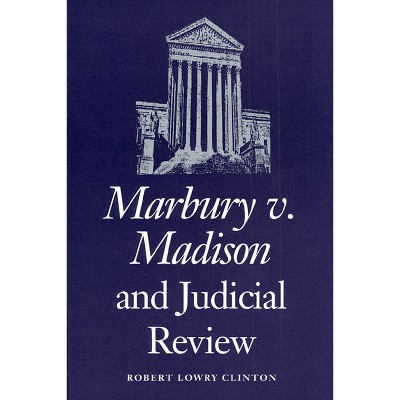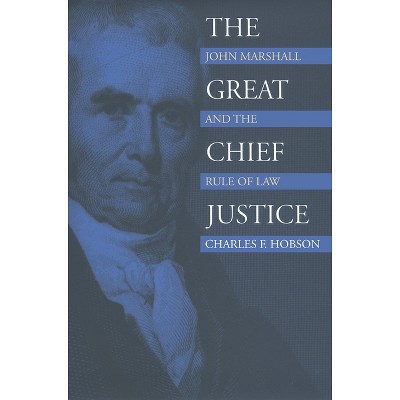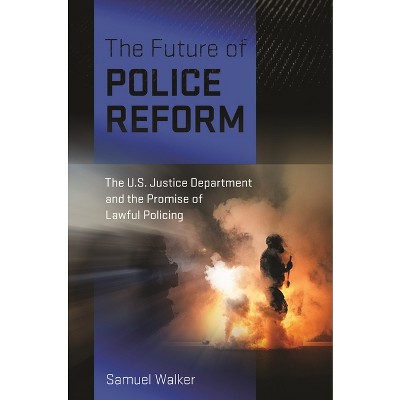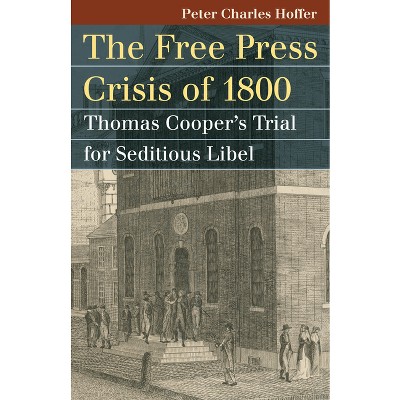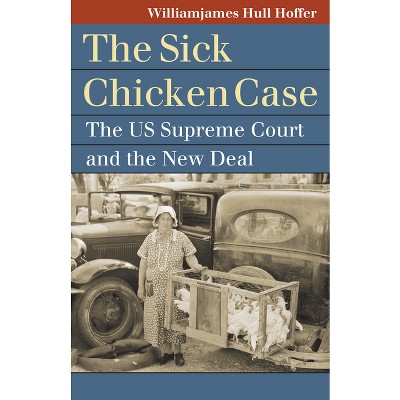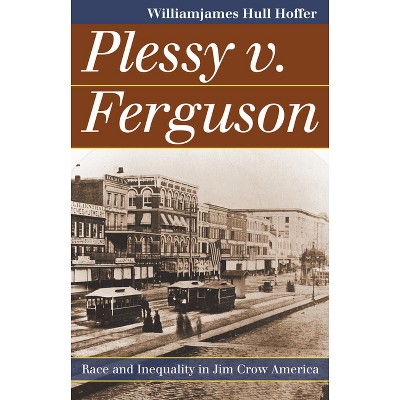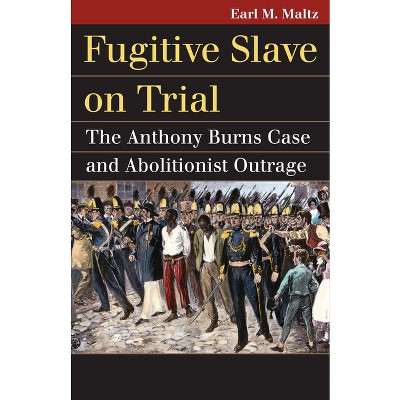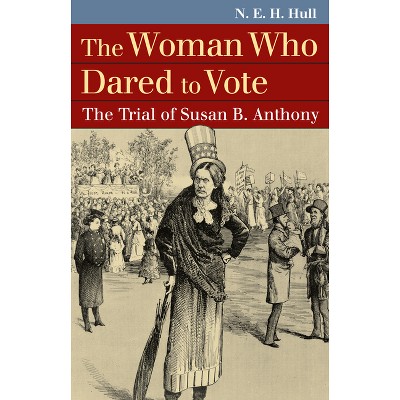Sponsored

Rutgers V. Waddington - (Landmark Law Cases & American Society) by Peter Charles Hoffer (Paperback)
In Stock
Sponsored
About this item
Highlights
- Once the dust of the Revolution settled, the problem of reconciling the erstwhile warring factions arose, and as is often the case in the aftermath of violent revolutions, the matter made its way into the legal arena.
- Author(s): Peter Charles Hoffer
- 168 Pages
- History, United States
- Series Name: Landmark Law Cases & American Society
Description
About the Book
A study of confederation era jurisprudence, featuring Hamilton, Burr, and a cast of other leading early national lawyers.Book Synopsis
Once the dust of the Revolution settled, the problem of reconciling the erstwhile warring factions arose, and as is often the case in the aftermath of violent revolutions, the matter made its way into the legal arena. Rutgers v. Waddington was such a case. Through this little-known but remarkable dispute over back rent for a burned-down brewery, Peter Charles Hoffer recounts a tale of political and constitutional intrigue involving some of the most important actors in America's transition from a confederation of states under the Articles of Confederation to a national republic under the U.S. Constitution. At the end of the Revolution, the widow Rutgers and her sons returned to the brewery they'd abandoned when the British had occupied New York. They demanded rent from Waddington, the loyalist who had rented the facility under the British occupation. Under a punitive New York state law, the loyalist Waddington was liable. But the peace treaty's provisions protecting loyalists' property rights said otherwise. Appearing for the defendants was war veteran, future Federalist, and first secretary of the treasury, Alexander Hamilton. And, as always, lurking in the background was the estimable Aaron Burr. As Hoffer details Hamilton's arguments for the supremacy of treaty law over state law, the significance of Rutgers v. Waddington in the development of a strong central government emerges clearly--as does the role of the courts in bridging the young nation's divisions in the Revolution's wake. Rutgers v. Waddington illustrates a foundational moment in American history. As such, it is an encapsulation of a society riven by war, buffeted by revolutionary change attempting to piece together the true meaning of, in John Adams' formulation, "rule by law, and not by men."Review Quotes
"The results of Hamilton's victory, according to Hoffer, were the rebirth of New York as a thriving city, the rise of a much stronger national union, and an example ofd judicial review nearly twenty years before the more celebrated case of Marbury v. Madison asserted this right for federal courts."--The Historian
"Hoffer's readers will come away with an expanded understanding of the Revolution from a legal standpoint, a deeper appreciation for the bitterness between Patriots and Loyalists, and the extent to which the New York community struggled with reconciliation (and the vital role law played in it.)--Journal of the American Revolution
"Rutgers v. Waddington--a case about a brewery!--is best remembered by scholars as one of the early milestones in developing the American doctrine of judicial review. But as Peter Hoffer explains in this deftly argued book, the case raises a larger array of significant questions about the nature of American law, politics, and constitutionalism in the immediate aftermath of the Revolution: everything from the authority of the law of nations to the practical problem of reintegrating the Loyalists into the new republic. Hoffer does a remarkable job of demonstrating how a single case can be read--and taught--for multiple purposes. "--Jack N. Rakove, author of Original Meanings: Politics and Ideas in the Making of the Constitution
"A concise, persuasive, and sophisticated study of Rutgers v. Waddington develops how Hamilton's practice of law sharpened his own understanding of the proper role of law in society and how the Constitution could be helpful in securing it. The book is as accessible and valuable to students and those interested in the nation's founding as it is to scholars."--Mark McGarvie, author of One Nation under Law: America's Early National Struggles to Separate Church and State
"Peter Hoffer illuminates how in the messy aftermath of the American Revolution lawyers, in particular Hamilton, transformed a lawsuit about a burned down brewery into a critical case making persuasive arguments for a stronger central government."--William E. Nelson, author of Marbury v. Madison: The Origins and Legacy of Judicial Review
Shipping details
Return details
Trending Non-Fiction






